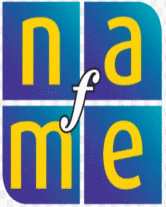Getting a Good Recommendation
by James Patrick O'Brien
The annual springtime ritual is underway: A flurry of graduating music education students seek recommendations from their professors. Many music teachers anticipating a change in position or simply wishing to update their professional files also periodically ask a supervisor or a professor for a recommendation.
Most persons who are in the business of training teachers or supervising others in a public school or college are quite willing to write a recommendation for a student or a teacher.
However, there is a gentle art in asking for that recommendation, and these considerations may serve as a guide.
- Ask the supervisor or professor, preferably in person, if he or she will be willing to accommodate you. Be certain you have a reasonably enthusiastic "yes" before you leave any forms or self-addressed envelopes for that supervisor.
- Give that person ample time to write the recommendation for you. Two weeks is minimal. An "I need it yesterday" attitude conveys a great deal about you, but probably not of a positive nature.
- Plan your request to avoid a time of peak activity for the supervisor or professor. During final examinations is not an appropriate time, nor during involvement in other projects, such as publications, performances, presentations, or travel. You will get a more enthusiastic response and a better letter if you plan accordingly.
- Provide a resume for your reference. This is very important if the supervisor is not presently aware of your job skills or interests. Even when you are currently enrolled in a professor's class or he or she is supervising you in student teaching, it is still good to provide a resume to show your interests beyond music, such as related job experience and special avocations.
- Specify whether the letter is to be a generic one for a placement folder or to be written with a specific position in mind. Generic letters are necessary as one begins a career in music teaching, but after acquiring teaching experience, a letter of recommendation should focus on your unique abilities and target them to a specific position.
- Ask persons who can influence a potential employer's decision to hire you. Although your private voice or instrumental teacher might know you better than your cooperating teacher or supervisor in student teaching, the latter is more important to a future employer. Do not omit people like this, even if the recommendation is not wholly positive. Such omission generates suspicion in a future employer. Thus, a music teacher moving from one district to another should have a recommendation from the building principal or superintendent.
- Suggest that the person writing the recommendation emphasize certain strengths and also mention areas in which you are still developing. Everyone has positive and negative qualities, although you hope the former outweigh the latter, and a believable letter should include a proportional mention of both. A totally glowing report leads to suspicion that the district is trying to get rid of you.
- If you are writing to a former supervisor after a few years for a recommendation, provide memory cues, such as a picture or an anecdote. Provide a self-addressed, stamped envelope or a phone number and time where he or she may call you collect for the response to your request.
- After you have acceptance, specify if the letter should be on official stationery. If there is a form or rating scale to complete, type in all the pertinent data, and provide a self-addressed, stamped envelope before leaving it with the supervisor.
- If the letter may be either confidential or nonconfidential, ask for the writer's preference. Nonconfidential letters, bowing to "access to information" laws, often result in recommendations so generic they tell the potential employer nothing about the candidate's strengths and weaknesses.
- Provide a timeline when you leave materials with a supervisor and reinforce it with a tag that states a deadline for completion. Be certain the date is agreeable to the writer and meets your needs and time constraints.
- Follow up with a thank-you letter or phone call in about a week. This is a good time to tell that person if you got an interview. It also serves as a gentle reminder if he or she has forgotten to complete the letter.
- Do not ask the same person again and again for a recommendation. You can wear out your welcome.
If and when you are a supervisor and are asked to write a million letters of recommendation, think of all the great people who wrote them for you.













